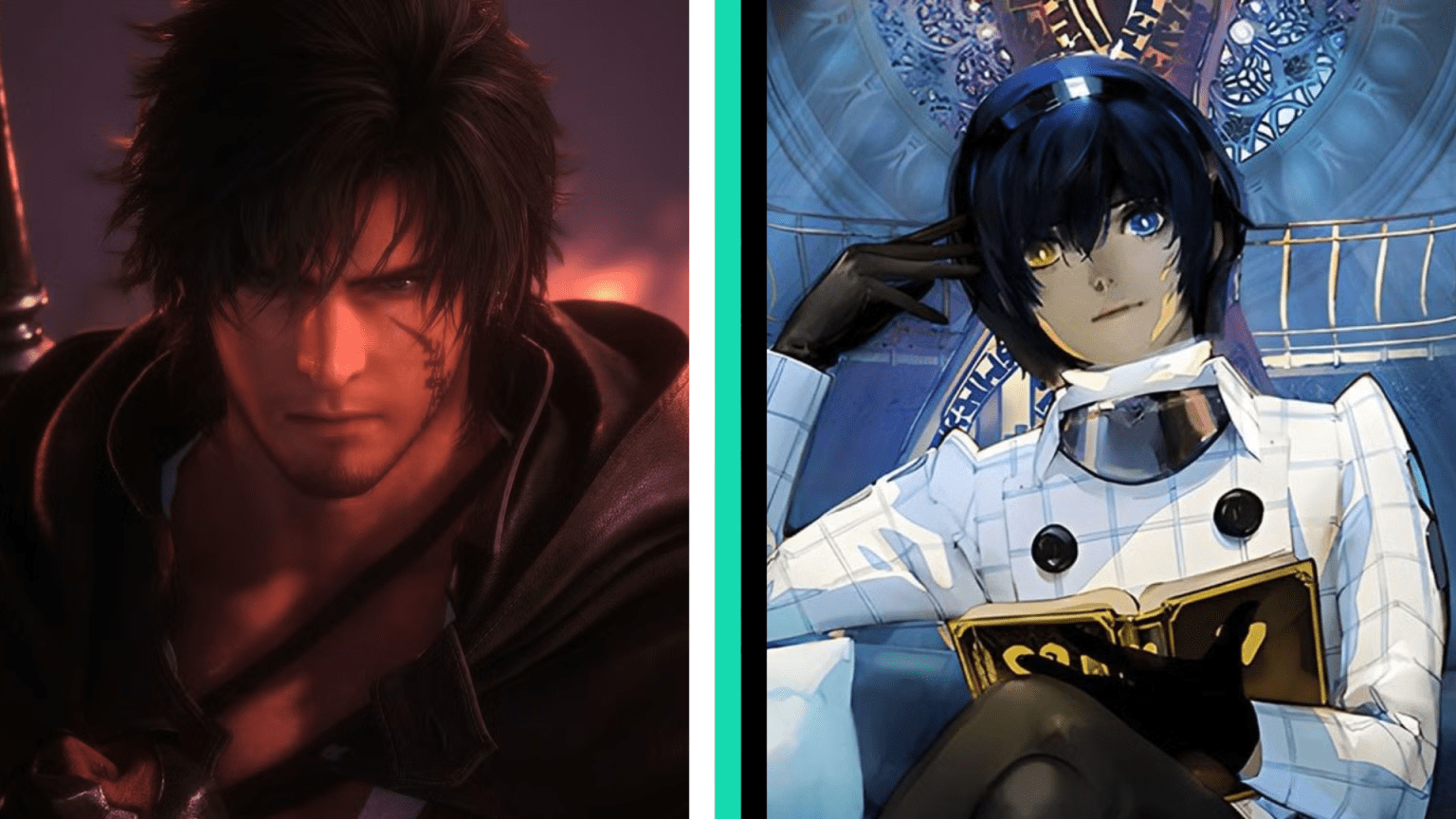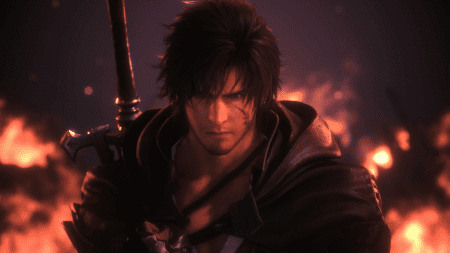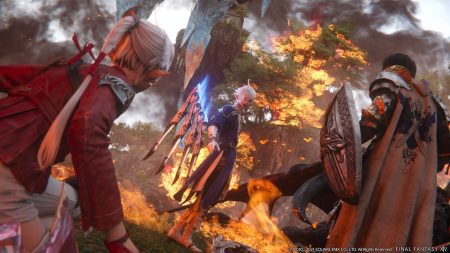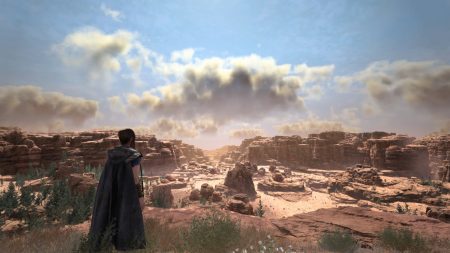In March 2023, as thousands braced the cold to descend upon Boston’s Seaport exhibition center, a few hundred more waited patiently in line, ready to witness fire. It was day three of PAX East, and the talk of the morning was an upcoming panel on Final Fantasy XVI. Producer Naoki Yoshida was on site to demo the latest version of the game, and the crowd was anxious to get a few new tidbits of information.
Here’s what I had to say back then, following the presentation:
Yoshi-P used his panel to address some burning fan concerns surrounding the game. Yes, it has linear sections, but it also has sprawling areas with plenty to see and do. Yes, it has quick-time events, but they’re used sparingly and won’t overstay their welcome. No, Final Fantasy XVI isn’t turn-based, but it has plenty of accessibility features to ensure fans new and old can appreciate the action.
[…] The combat looks great, the visuals are stunning, and the voice acting is the finest I’ve heard since Final Fantasy XII. If the narrative holds its weight, this should be a JRPG to remember.
Months later, I’d have time to reflect on those words and wish I’d paid closer heed. For while Final Fantasy XVI delivered its share of flashy thrills, the substance under the surface left far more to be desired. We never reviewed the game for the site, but if we had scored it, it wouldn’t have fared particularly well.
Final Fantasy XVI’s cardinal sin was, in fact, its narrative. Grand in ambition but weak in execution, the game failed to capitalize on its (admittedly) terrific opening hours. Yes, the combat scratches a certain itch, and Masayoshi Soken delivers his share of unquestionable bangers, but the magic that binds the typical Final Fantasy adventure is nowhere to be found.
What I found instead was a hollow game with shockingly little to say.

The (Lack of) Substance
I’ve long been a proponent of the idea that combat can carry any RPG. Games like Lost Odyssey and Vagrant Story often win me over with rich worlds and compelling characters, only to lose me with antiquated gameplay. By contrast, it’s the Final Fantasy XIIIs and Xenoblades of the world—games with rampant melodrama but strong underlying mechanics—that compel me to reach the finish line.
Obviously, in a perfect scenario we’d have both. Baldur’s Gate 3 and Final Fantasy VII Rebirth are textbook examples of how to prioritize both combat and storytelling, keeping players entertained no matter what they’re doing. But when one of the two legs of the stool must fall, I will almost always sacrifice the narrative in favor of a good time.
Final Fantasy XVI challenged my belief in this philosophy. In a vacuum, the gameplay is enough to carry a 70-hour RPG. You have combos to learn, skill trees to explore, and powerful Eikon abilities to master. By swapping between Eikons on the fly, you open up even more combo lines for Clive, the game’s protagonist.
But hacking and slashing, as smooth as they were, wasn’t enough to save Final Fantasy XVI. In the case of Clive Rosfield, there was an equal and opposite force that undid much of that goodwill—and that force stems from a narrative decision publicized long before XVI hit store shelves.
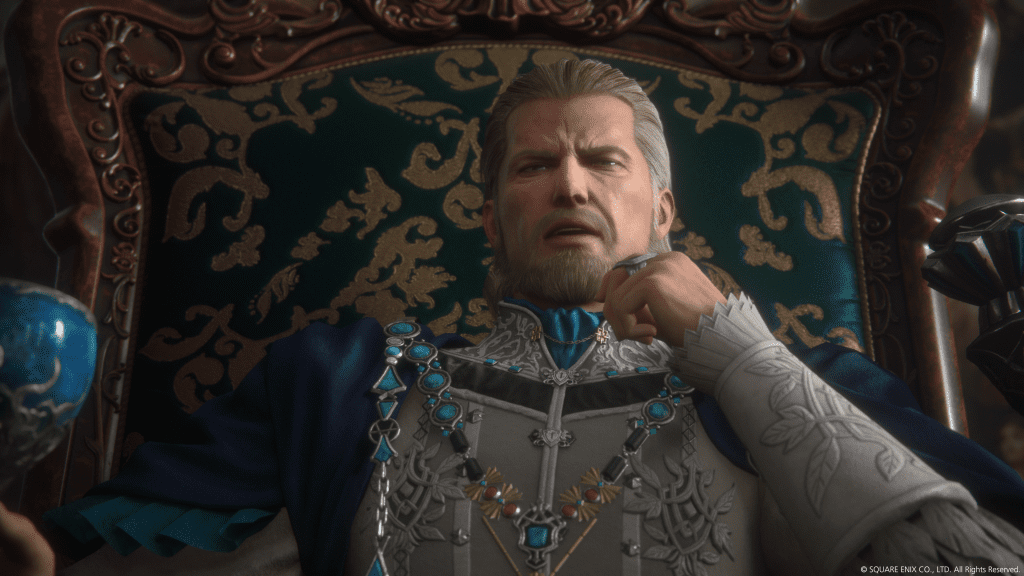
The Adamantoise in the Room
In a November 2022 interview with IGN, Yoshida fielded a question about the diversity of XVI’s populace. Back then, we knew bits and pieces about Clive’s story—that it would be set in a Game of Thrones-inspired land and focus on political warfare, for instance—but little else. One observation fans did glean, however, was that the world of Valisthea sure was homogenous.
Yoshida’s response:
When deciding on a setting that was best suited to the story we wanted to tell — the story of a land beset by the Blight — we felt that rather than create something on a global scale, it was necessary to limit the scope to a single landmass — one geographically and culturally isolated from the rest of the world in an age without airplanes, television, or telephones.
Due to the underlying geographical, technological, and geopolitical constraints of this setting, Valisthea was never going to realistically be as diverse as say a modern-day Earth… or even Final Fantasy XIV that has an entire planet (and moon) worth of nations, races, and cultures at its disposal. The isolated nature of this realm, however, does end up playing a large part in the story and is one of the reasons Valisthea’s fate is tied to the rest of the world.
Ultimately, we felt that while incorporating ethnic diversity into Valisthea was important, an over-incorporation into this single corner of a much larger world could end up causing a violation of those narrative boundaries we originally set for ourselves. The story we are telling is fantasy, yes, but it is also rooted in reality.
That last point speaks the loudest: “The story we are telling is fantasy, yes, but it is also rooted in reality.”
What reality was Yoshida referring to? The charitable take is that Valisthea, inspired by medieval Europe, was meant to closely mimic its source material. In that region, at that time, people tended to be white (though people of color certainly existed too).
But there’s a less encouraging take, one that I’ve been left to mull over in the months since I’ve been away from the game. Final Fantasy XVI is a story with slaves, but it isn’t a story about slavery. Its narrative is one of cruelty and injustice, but the only people who suffer those cruelties and injustices are those least likely to experience them in the real world. In Yoshida’s struggle to tell a complex story of classism and xenophobia, he lost the plot long before players booted up the game.
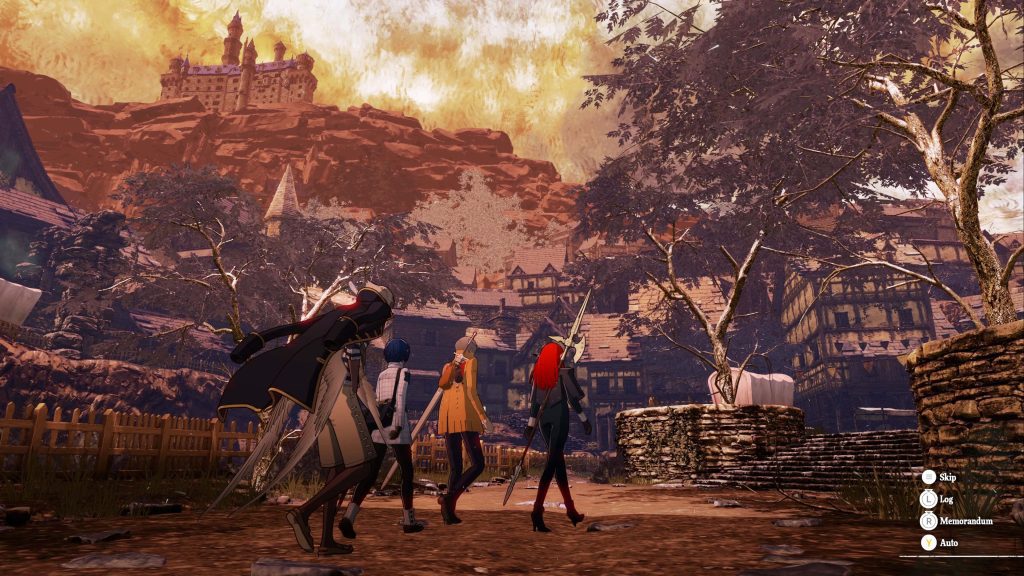
From Eikons to Archetypes
To be perfectly clear: Clive isn’t the issue here. Yes, he’s a fair-skinned slave, which feels a stretch for a game based on reality. But putting a POC in the same role would have been cause for disaster. (Imagine an alternate timeline where Barrett from Final Fantasy VII was a felon who escaped Corel Prison.) Yoshida and his team walked a careful line, and it’d be discourteous of me to allege that they didn’t.
Instead, my issue lies with Yoshi-P’s rationale that ethnically diverse people would somehow break the game’s narrative parameters. Yes, it’s a take on Game of Thrones, but guess what! Game of Thrones faced similar criticism, and for good reason. Nothing precludes your fantasy world from including fantastical elements—by definition, the world demands it. And if we can make massive mythical deities fit the script, surely we can make a black shopkeeper or brown farmer fit it too.
Final Fantasy XVI was based on reality. So was Final Fantasy XV. At what point are we going to admit that the “fantasy” in the title is long lost?
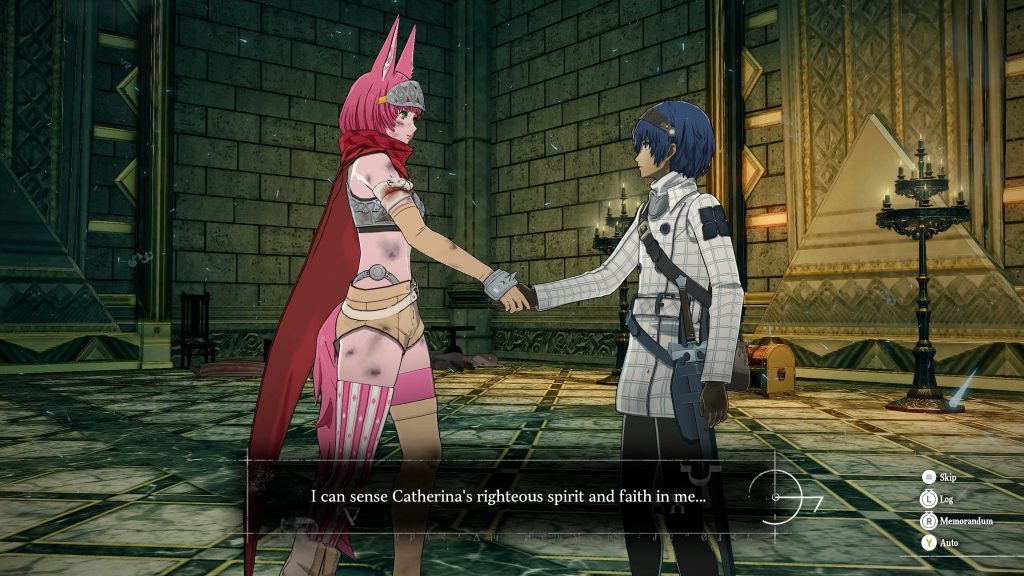
I’m willing to hold out hope. In the meantime, though, there is a game that shows what true fantasy could look like. Incidentally, it also happens to be a game with dark themes, unbridled loathing, and terrible people. If it wasn’t obvious by the article header, I’m talking about Metaphor: ReFantazio, which wowed many critics last year, myself included.
Last month, for our 2024 Prop Awards, I said this about Metaphor’s surprisingly inclusive storytelling:
Yes, the game’s cast (including the protagonist) are routinely subjected to racism, from shopkeepers who refuse to sell to you to townspeople who snicker and jeer at your existence. But the game also paints a picture of what true inclusion CAN look like: tribes who band together, despite their differences, in the name of hope for their country and love for one another.
I also appreciate that Metaphor ignores the pitfalls of other RPG contemporaries (I’m looking at you, Final Fantasy XVI) by actually acknowledging that black and brown people exist without automatically making them a slave, or illiterate, or some other trauma porn. POCs exist throughout Metaphor, and they hail from different tribes, with unique creeds, aspirations, and lived experiences. Some are persecuted; others do the persecuting. It’s a refreshing way to acknowledge real-world diversity while tackling the inequities of Metaphor’s own reality.
The more I play of Metaphor (I haven’t finished it quite yet), the more I come to appreciate its commitment to tackling Real Issues. From calling out fascism and xenophobia, to celebrating empathy and moral decency, it isn’t afraid to say the quiet parts out loud. It doesn’t hurt that the gameplay is stellar, but I’d trudge through anything to see that narrative through.
Final Fantasy XVI took aim at injustice but ended up firing blanks. Metaphor didn’t forget the bullets.
David is the founder of The Punished Backlog. He has a problem finishing games he starts.
Just beat: Donkey Kong Bananza.
Working on: Hollow Knight: Silksong.
Can't wait for: Metroid Prime 4: Beyond.
Follow David on Twitter at @David_Silbert to keep up to date with all things The Punished Backlog.


